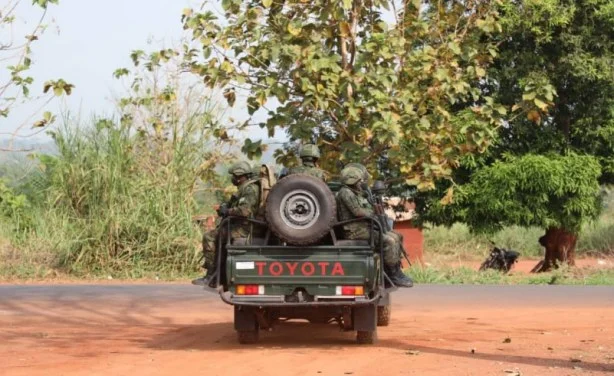On January 3, 2021, the Coalition of Patriots for Change (CPC) attacked Bangassou, 480 km east of Bangui, killing five rebels, the UN peacekeeping mission (MINUSCA) reported. A local church leader confirmed to AFP that gunfire and explosions began at 5 a.m.
with MINUSCA deploying robust patrols to secure the area. The assault followed a CPC attack on Damara, 70 km north of Bangui, on January 2, highlighting a surge in violence tied to the December 27, 2020, elections.
Election Fallout and CPC Offensive
President Faustin-Archange Touadéra, declared the winner with 53% of the vote on January 4, 2021, faced accusations of rigging from former President François Bozizé, who backed the CPC after the Constitutional Court barred his candidacy due to an international arrest warrant. The CPC, formed on December 19, 2020, by six rebel groups including ex-Séléka and anti-Balaka factions, aimed to disrupt the polls, attacking 29 of 71 sub-prefectures and preventing voting in 40% of districts, per France 24. Touadéra’s dismissal of rebel leaders from government roles ended the 2019 Khartoum peace deal, escalating tensions.
Damara Clashes and Strategic Importance
On January 2, CPC rebels targeted Damara, Touadéra’s hometown and a key settlement before Bangui. Central African Armed Forces (FACA), Rwandan troops, and Russian mercenaries repelled the attack, with fighting lasting until late morning, per Bangui correspondent Charlotte Cosset. Residents fled into nearby forests amid heavy gunfire, though no civilian or fighter casualties were immediately reported. MINUSCA expected air reinforcements on January 2 to bolster defenses.
Role of International Forces
MINUSCA’s 12,800 peacekeepers, alongside Rwandan troops and Russian Wagner Group mercenaries, supported FACA in countering CPC advances. On January 13, the CPC attacked Bangui’s outskirts but retreated after clashes killed one Rwandan soldier and several rebels, per Al Jazeera. Rwanda sent 300 additional troops, and Russia provided 300 military instructors before the elections, thwarting a CPC push to seize the capital.
Humanitarian Crisis
The violence displaced over 100,000 people, with 80% of Bangassou’s residents fleeing to the Democratic Republic of Congo, per Bishop Juan-José Aguirre Muñoz. The CPC’s strategy to control trade routes, like the Cameroon-Bangui corridor, aimed to “suffocate” the capital, causing food shortages, according to Crisis Group analyst Hans De Marie Heungoup. The UN reported 233,000 newly displaced by electoral violence by September 2021.
Political and Security Challenges
Touadéra’s government accused Bozizé of orchestrating a coup, a charge he denied, though he confirmed leading the CPC in March 2021, per Global Security. Human rights groups criticized the Khartoum deal’s inclusion of rebel leaders as “special military advisers,” citing their groups’ atrocities, including civilian killings and rape. The CPC’s actions, alongside Wagner’s reported abuses against Fulani communities, risk further destabilization, per Crisis Group.






